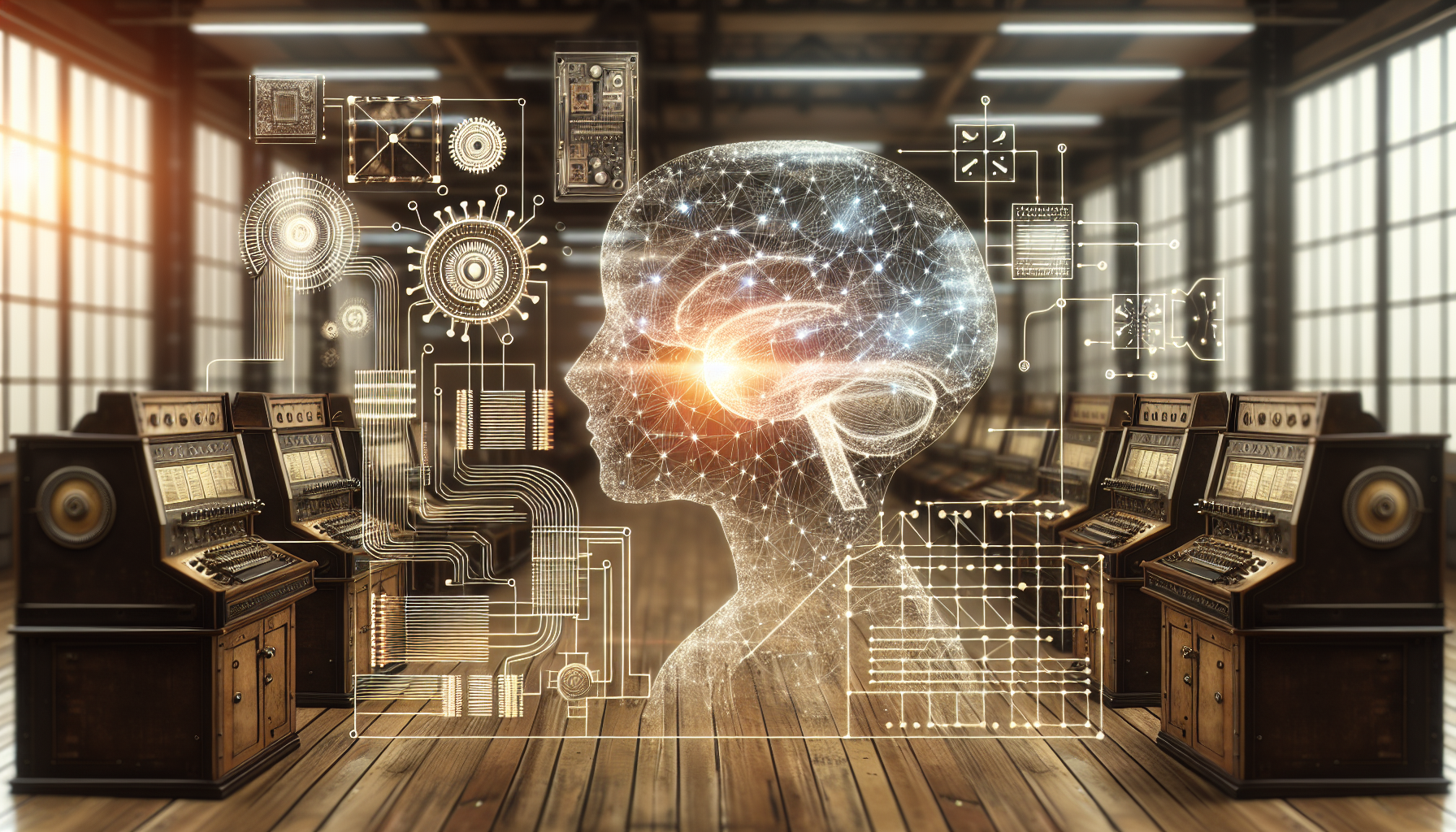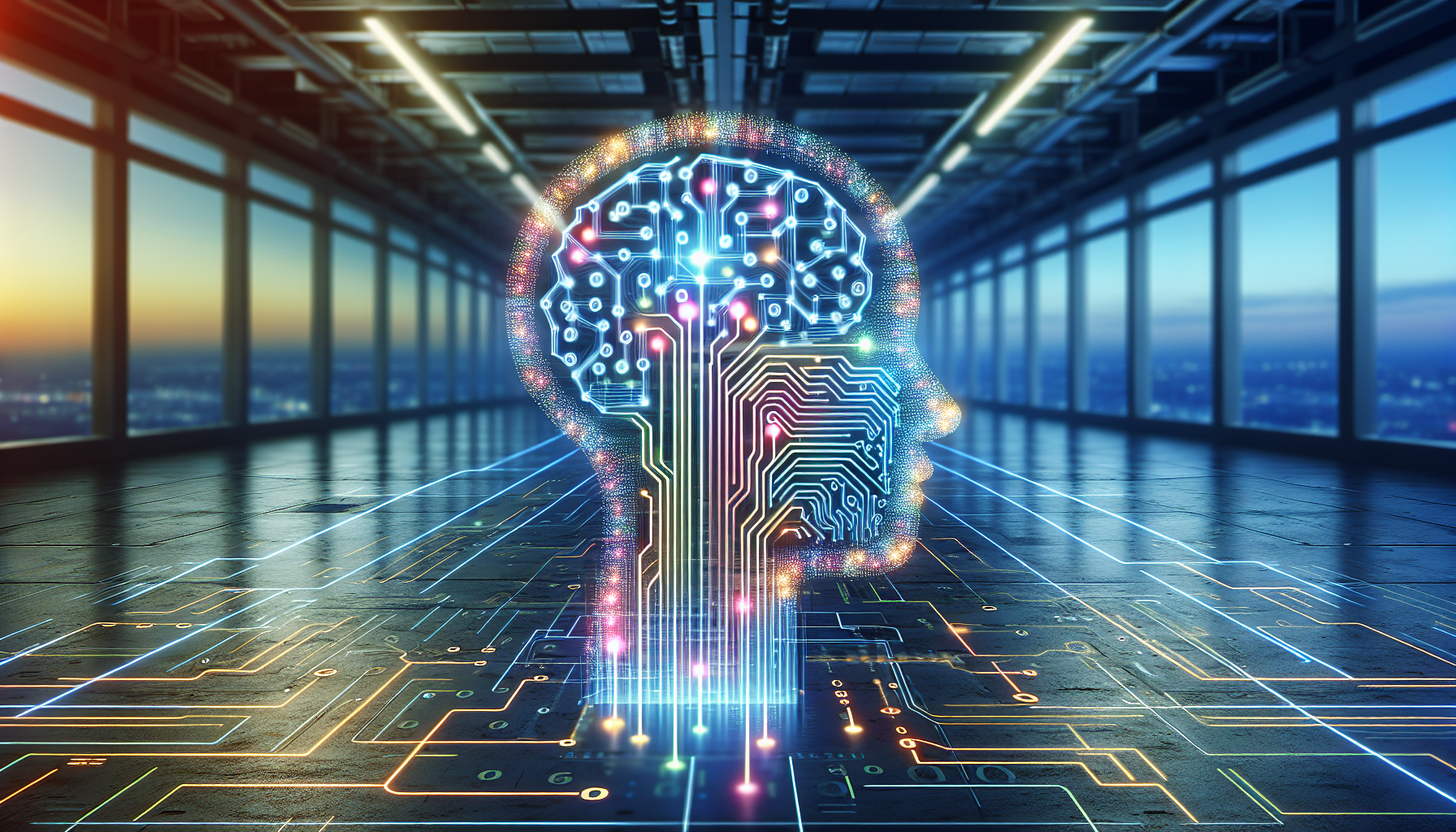
Quantum Computing and AI: A Historical Perspective on a Game-Changing Alliance
November 26, 2025
Imagine a world where computers can solve complex problems in seconds that would take current systems thousands of years. Sounds like science fiction, right? Well, this is the tantalizing promise of combining quantum computing with artificial intelligence. But before we dive into what the future holds, let’s take a step back and explore how this powerful alliance has been brewing over the decades.
The journey of computational power and intelligence began long before terms like "quantum computing" or "AI" became buzzwords. The early days saw pioneers who dared to dream beyond the capabilities of traditional computers. These visionaries laid the groundwork for what would eventually evolve into the sophisticated technologies we're discussing today.
The concept of quantum computing emerged from the intersection of quantum mechanics and computer science. While classical computers use bits as their basic unit of information, quantum computers use qubits. This might sound like an arcane technical detail, but it's a game-changer. Qubits can exist in multiple states simultaneously, thanks to the bizarre principles of superposition and entanglement. This allows quantum computers to process vast amounts of data in parallel, potentially solving problems that are currently intractable.
Parallel to these developments, AI was charting its own course. Initially, artificial intelligence was a field filled with more hope than practical application. Early AI programs were rule-based systems, limited in scope and capability. However, as computing power increased and data became more accessible, AI began to show promise in areas like pattern recognition and machine learning.
The real magic started to happen when researchers realized that the immense computational power of quantum computers could be harnessed to supercharge AI algorithms. Think of quantum computing as a high-performance engine and AI as the vehicle. Together, they could traverse landscapes of complexity that were once unreachable.
Historically, this combination has been more than just theoretical musings. It reflects a series of breakthroughs and setbacks, collaborative efforts, and lone geniuses pushing the envelope. One of the less talked about aspects is the role of interdisciplinary collaboration. Physicists, computer scientists, and mathematicians have worked in tandem, often speaking what seemed like different languages but ultimately converging on a shared vision.
In the early days, skeptics questioned whether quantum computing could move beyond the realm of academic curiosity. The challenges were immense: maintaining qubit coherence, error correction, and scaling up the systems. Yet, through a mix of perseverance and ingenuity, progress was made. Major tech companies and academic institutions invested in quantum research, understanding that the potential applications were nothing short of revolutionary.
As quantum computing matured, its synergy with AI became more apparent. Quantum algorithms could potentially optimize machine learning tasks, such as training neural networks, far more efficiently than classical computers. This could lead to faster breakthroughs in fields ranging from pharmaceuticals to climate modeling by enabling AI to analyze and interpret complex datasets with unprecedented speed.
One fascinating historical tidbit is the role of thought experiments in propelling these fields forward. Theoretical constructs like Schrödinger's cat and Turing's machine weren't just academic exercises; they challenged conventional understanding and inspired generations of scientists to explore beyond the known.
Looking back, it's clear that the marriage of quantum computing and AI is not just a leap in computational capability; it's a testament to human curiosity and the relentless pursuit of knowledge. This collaboration is akin to unlocking a new dimension of problem-solving, where the impossible becomes possible.
As we stand on the brink of this new era, one can't help but wonder: How will this powerful combination reshape our world? What new questions will it allow us to ask, and what answers might it uncover? The intersection of quantum computing and AI is not just a chapter in the history of technology; it's the beginning of a narrative that could redefine how we understand reality itself.
Are we ready to embrace the possibilities, or are we just scratching the surface of what these technologies can achieve together? As we ponder these questions, it's clear that the journey of quantum computing and AI is far from over, and the most exciting chapters are yet to be written.

